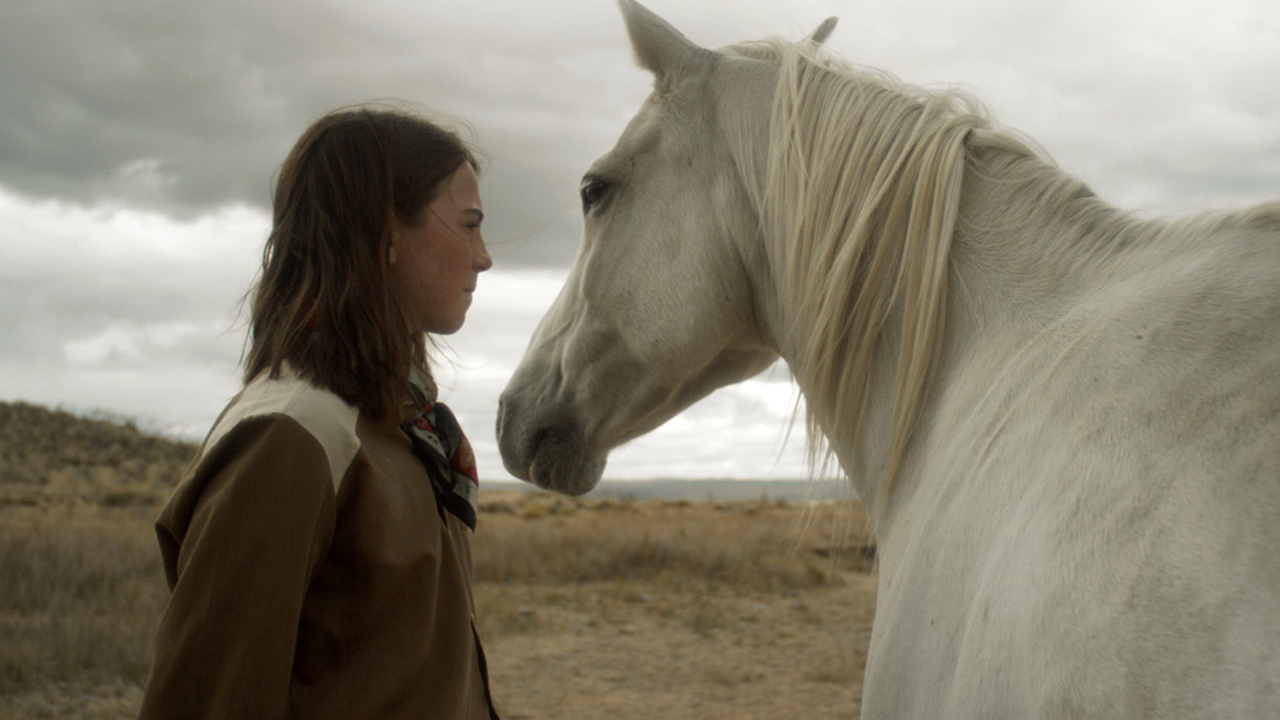Magnificent landscapes, Scope format… and a young heroine. With “Zahori” Marie Alessandrini expands the Western beyond the clichés of the genre. Meeting with the director.
AlloCiné: What is Genesis? Zahor ?
Marie Alessandrine : The first time I went to the boarding house that we see in the movie was to do a puppet show I was a part of in the school troupe. At a time when I was already practicing photography, I made the first black-and-white portraits of the children of this boarding school. This isolated school in the middle of the desert and these kids living so close to my home in a parallel reality really impressed and questioned me. Since then I have continued to walk around with my camera, visiting people, visiting other schools, participating in their popular festivals and exploring new possible routes. On the 22nd, I went to the steppe to take pictures and got lost. I had no more water, it was night and it was very cold. I started to panic, then I saw a light in the distance. He came from the house of an old Mapuche. For the first time I met a person who lived like this, really alone, in the middle of nowhere. He followed me, when he left he asked me to send him a message on national radio when he got home… I felt his loneliness and imagined that he would probably die alone, anonymously. Then I became interested in the old people of the steppe, their feelings, their relationship with death. This accumulation of experience deeply enchanted me and the film project was born.
You choose to shoot in Scope, Western format. Why is this choice?
It seems to me that the scope format offers a necessary space for a man’s relationship with a landscape of mythic dimension. Steppe landscapes are present everywhere Zahor, always in relation to the characters, their living conditions or emotions. Some live in harmony with this environment, while others are alien, like missionaries, or in conflict, like parents. This intimacy with Steph forms the bond that unites Mora and Nazareno. Indeed, the scope is a basic Western format for white male conquest of territory, usually through the extinction or subjugation of indigenous peoples, the oppression of women, accompanied by domestication, horse slavery. A genre that I wanted to move, diversify. Zahor is a feminist western, not a colonialist one. Mora frees herself from social oppression and finds her own way through the friendship of Nazareno.
The beauty and harshness of the landscape shine through in each frame. Shooting must have been an ordeal…
Shooting was a huge challenge, a test of endurance! The conditions were very harsh, sun, wind, sand… material that flies and crumbles. The steppe infrastructure is quite poor, there are few roads. We had to cross rivers in 4x4s, drive for hours at 30km/h… so you must love that kind of adventure! We shot in the middle of an economic crisis and the devaluation of the Argentine peso every week meant that everything cost us more and more. Our budget was no longer the same value at the beginning and end of the shoot. We really had to go back to the basics, work as naturally as possible, downsize the team, the equipment, minimize the movements and the number of shots.
How did you discover the young heroine? Zahor ?
We organized casting in Patagonia through radio and social networks. I also traveled a lot to see different girls in the area, this lasted for several months. I think I saw sixty girls before I was chosen. Above all, I was looking for someone who feels a deep love of nature, with feminine and masculine characteristics, physically strong and also quite independent. Lara Tortosa, who plays Mora, had it all. He could spend the day with me in the steppes in rehearsal scenes, climbing hills, playing with insects whenever possible!
Source: allocine
Emily Jhon is a product and service reviewer at Gossipify, known for her honest evaluations and thorough analysis. With a background in marketing and consumer research, she offers valuable insights to readers. She has been writing for Gossipify for several years and has a degree in Marketing and Consumer Research from the University of Oxford.







